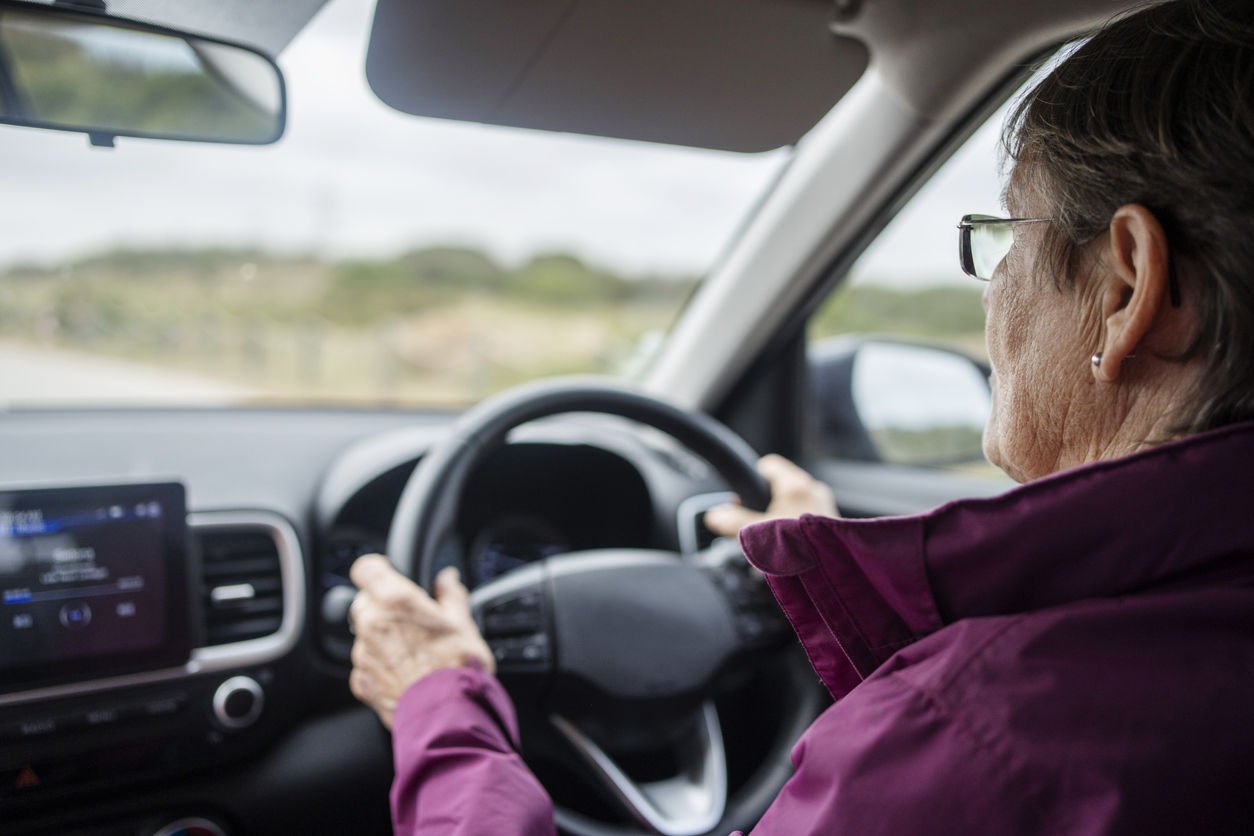Do you need a driving refresher course?
Research suggests drivers in later life can benefit from tailored driving lessons.

For many seniors, driving is important to their identity and sense of independence and usefulness.
Into his 80s, my dad was very proud of his driving ability. Gradually, he drove less and fewer kilometres and eventually he recognised he could become a danger on the road.
He stopped driving, but he never gave up his licence – something he first secured, as a rite of passage, during World War II when he drove army transports from Darwin to Adelaide and back.
The latest research into older driver behaviour is finding that tailored driving lessons can improve older driver performance and safety on the road.
As my father found, ageing brings with it some physical and cognitive challenges, such as slower reflexes, shrinking peripheral vision, and a reduced capacity to react to fast-moving and changing conditions.
But bad driving isn’t exclusive to any age group, as a glance at the high rates of accidents among young drivers will tell you.
Young male drivers are the most at risk of road death, but older drivers have higher rates of crashes than middle-aged drivers.
Neuroscience Research Australia (NeuRA) recently completed a randomised controlled trial of older drivers – called the Better Drive Study – to see whether driving skills can be improved despite the physical and cognitive challenges of old age.
In the trial, drivers over 65 were put into three groups. The first did a road rules refresher course, the second group was videoed while driving and their errors were played back, and the third group got the video feedback plus lessons tailored to their errors.
The researchers found the most improved were those participants who had driving lessons and video feedback.
Senior principal research scientist, Professor Kaarin Anstey, says the researchers see a similar range of errors made by older drivers in the study that are different to the sort made by young drivers. However, not all mistakes being caught are necessarily due to old age.
“A lot of these are just bad habits that drivers have brought with them from their younger years,” she said.
These include:
Not checking blind spots
Not taking right hand turns properly
Cutting corners
Not maintaining their lane position.
“In our study drivers get to practise the errors, which I think is quite powerful,” she said.
“They’re not just being told what they’re doing wrong and what not to do. They’re actually getting a chance to learn to do it the right way.”
The researchers recommend ongoing driver improvement intervention for older people across states and territories.
“We need to put some effort into improving our driving and maintaining our skills, and it shouldn’t be stigmatised at all,” Prof Anstey said.
“It could be something like, when you turn 50 you’re invited to have an extra driving lesson just to check in on your driving. At the moment, you’d only get that if you had something wrong with your driving. It’d be better to make it a normal part of life.”
Dementia does not necessarily result in disqualification of a person’s driver’s licence.
“If a person has dementia, they have to be given a restricted licence that limits them to driving close to home,” said Prof Anstey.
“Most people continue to drive with early dementia. In fact, international research shows that people with Alzheimer’s disease continue to drive for 18 months to three years after first diagnosis.”
But Prof Anstey cautions it depends on what type of dementia is detected. There are some forms of dementia that exclude people from driving, particularly those that seriously affect co-ordination, or the planning and decision-making parts of the brain, known as executive functioning.
“For these reasons, whether or not you can drive has to be decided on an individual basis by a GP and occupational therapist,” she said.
There is no standard or unified driver licence assessment in Australia.
The rules range from self-reporting medical conditions – as is the case in Victoria – to annual medical assessments from a GP after the age of 75 and practical driving tests once over 85, as in NSW.
NeuRA has developed website for older drivers, Ageing Well on the Road , helping older drivers throughout Australia navigate the different rules and regulations.
Related reading: Neura, Ageing Well on the Road




